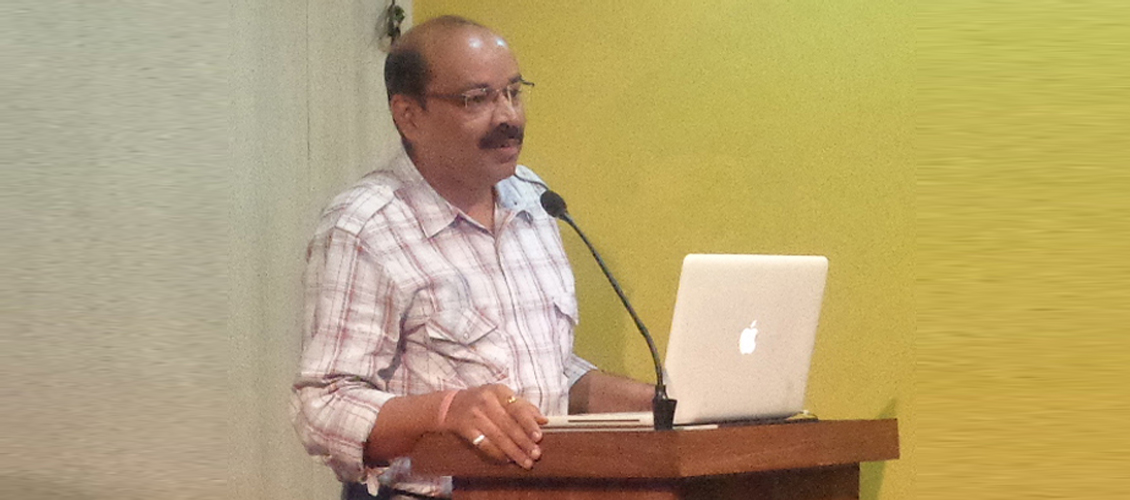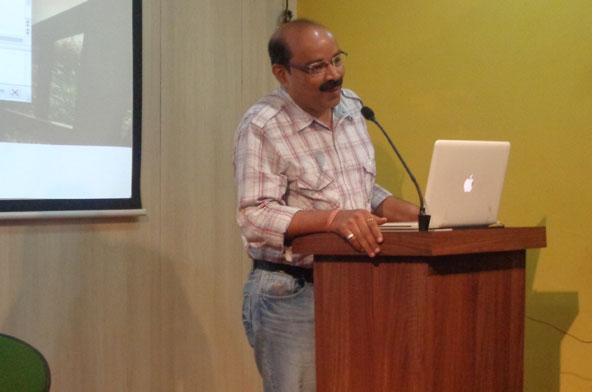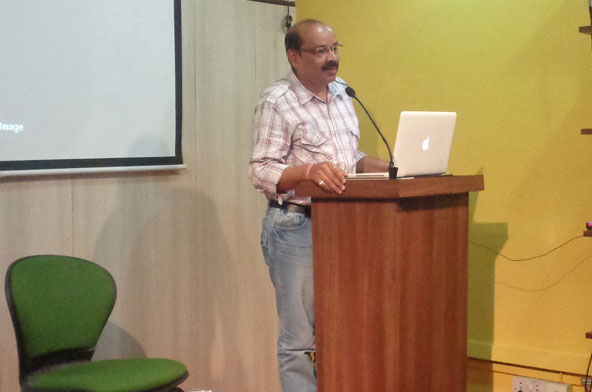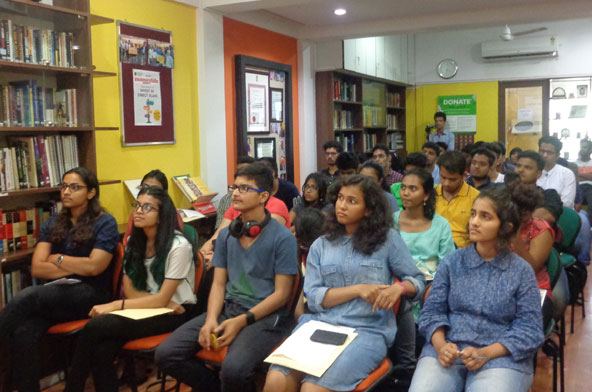
Calling technology a great leveller, Yogesh Sapkale, Director for Projects at Moneylife Foundation and Deputy Editor of Moneylife, shared some tips and tricks with students to stay safe online. He was speaking at a summer special seminar organised by Moneylife Foundation in Mumbai.
Dividing digital transactions into five segments — mobile banking, net banking, cards and e-wallets, online shopping and digital security– Mr Sapkale explained safety and security practices to keep money and privacy safe. Most importantly, he advised youngsters never to use free Wi-Fi, especially for financial transactions, as on public networks, as there is always the danger that someone might steal the data.
One interesting observation he shared was on how people often get fooled because they are unaware of the difference between a ‘URL’ and a ‘domain name’. For instance, http://en.wikipedia.org/ was a URL whereas ‘Wikipedia.org’ was the domain name. “There is a message spreading on WhatsApp that offers Redmi Note 4 mobile for just Rs499 with a link http://amazon.note4-499rs-sale.in. However, in this link, the domain is ‘note4-499rs-sale.in’ and not ‘amazon.com’ or ‘amazon.in’, which people most often fail to notice and fall prey to spams or spurious sales. This domain is nowhere related with Amazon. By the way, note4-499rs-sale.in is registered by one Rahul Kumar from Delhi,” he added.
He urged students to follow three simple steps before opening any mail received from an unknown sender- ‘Stop, Think and Click (maybe)’. However these steps change while dealing with ‘Scareware’ (pop-ups that either state that your system is performing slowly or your computer is attacked by a virus) – Stop, Think, and Do not Click.
For the security of one’s personal computer Mr Sapkale advised everyone to install anti-virus and anti-malware software. “Keep updating all software and preferably keep them on auto download mode as this will ensure the security of your device. Avoid clicking on any link or ‘submit’ button on screen, unless you have initiated the session, especially for financial transactions,” he added.
“In case of online shopping, shop only on reputed websites and make sure you do not fall prey to deals that are too good to be true. Moreover, opt for cash on delivery (COD) and open the package in the presence of the delivery person to check if it is same as you ordered. Preserve all communications with the website which will come handy in case there is some issue with the product or service,” he advised.
Talking about protecting personal identification number (PIN) for ATM-debit or credit card, Mr Sapkale told the group never to share it with anyone, including the bank itself. He says, “Change the PIN regularly and enable bank SMS alert on your mobile phone. Also, be aware of your surroundings and cover your keypad while entering the PIN in an ATM. Do not let your card out of your sight. In case of any mishaps report the same to the bank as well as the bank manager. If no action is taken then escalate the case to the nodal officer of the bank and then to the Banking Ombudsmen. Cyber Act Court under the IT Act and the State IT secretary is in charge and he will hear your case if it is regarding financial frauds”, he added.
Mr Sapkale also explained the difference between plastic cards, one with a magnetic stripe and other with Euro, MasterCard Visa (EMV) chip cards. He told the youngster to opt for chip-based plastic cards as it stores your personal data in a more secure and hard to copy manner, compared with magnetic stripe, where data can be easily copied using a skimmer device.
Mr Sapkale then explained the most important part in one’s digital life — the password. “Never share your passwords with anyone. Create passwords using memorable phrases; mix it with numbers, special characters. Never use a word from a dictionary, either as base or password. Feel free to mix languages. For financial transactions, I would suggest a password with a length of at least 13 characters. For debit or credit card PIN’s, use the keypad of old mobiles to create a new combination,” he advised.
Using some popular words from Mahabharata and Indian films, he demonstrated online, how unusual words can be used to create strong password when mixed with special characters and numbers. He also showed the eager audience thee estimated time taken to crack passwords of different length.
“Some people say technology is evil, but I do not agree. If I manage it well and make good use of it, it will only make my life better. Digital technology is a huge boon; however the road to using it is full of pitfalls. All you need to learn is to navigate to avoid mishaps,” Mr Sapkale concluded.




